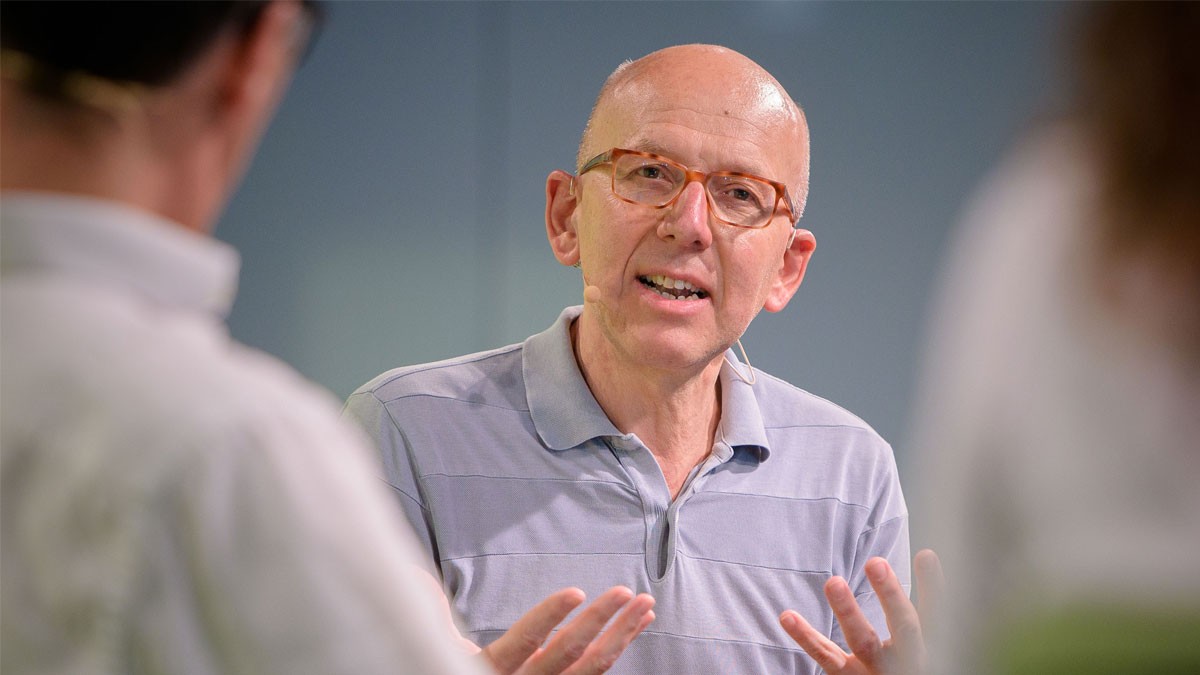Can art create ethical value?
The question of the values conveyed in art is one of the most important debates in contemporary art in recent years. For quite a few critics, art is currently judged too much according to moral standards, according to a new political correctness: post-colonialism, #metoo or toxic sponsorship. Yet art is a space of freedom and many artists see themselves as taboo-breakers. At the same time, documenta fifteen and the painting ‘People's Justice’ by Taring Padi with its anti-Semitic depictions of figures triggered an unprecedented public debate on the content and limits of artistic freedom. In the talk ‘Art as a value system. Can we still rely on art?’, the discussion centred on whether a new concept of art is necessary or superfluous.
According to art critic Oliver Koerner von Gustorf, the art scene has developed in different directions, which should be realistically recognised. After Donald Trump's re-election at the latest, it had become clear that art had failed as a moral value system. Nevertheless, we should hold on to the freedom of art. With regard to the anti-Semitism debate, one should judge on a case-by-case basis whether anti-Semitism is present and not with the tool of a resolution. This applies to all controversial topics. You can no longer just be on the right side. This is a dilemma that can also lead to interesting further developments.
Heinz Bude, professor emeritus of sociology at the University of Kassel and founding director of the documenta Institute, said that we must first agree that anti-Semitism in Germany exists in three forms. The old anti-Semitism, which is still manifest. The anti-Semitism that comes from the left and Muslim anti-Semitism. One should not argue that these three forms do not exist. The cultural scientist Diedrich Diederichsen disagreed: we should urgently discuss this. Bude thought it was more important to ask how to deal with it. The fact that parties have to think about this is due to the special form of German statehood. The majority of the most important political forces say that Israel's right to exist must remain unconditionally guaranteed.
Overpopulation in the art world
When asked why there is still the opinion that certain values must be upheld in culture, Diederichsen replied that there is a milieu that supports culture and agrees on many points. When artistic projects attempt to reach into the real world, they receive praise because there is agreement on the goals. There is no such unity when it comes to the anti-Semitism controversy. That is why there is a culture war raging at the moment. In any case, the description of art as a value system is curious. It is the participants who have values and can even agree. The question is rather, how is the milieu changing? The fact that something is changing has to do with the fact that the material foundations are becoming more precarious and new players have emerged in the field of art production and the market. As a result, the whole situation is in motion.
In response, Bude stated that there was an overpopulation in the art world, that there were not enough jobs or opportunities. We need to think about what to do with all the graduates from art academies. The field is becoming more professionalised, for example through the awarding of doctorates. Nevertheless, many people ask him whether art still has a future because they themselves doubt it. He is therefore not sure whether this constant milieu still exists. Diederichsen confirmed that the number of participants in the art system has increased enormously over the last two decades, but at the same time the volume of the market has also increased. The number of those who are barely paid, stand around at art openings and are part of the value formation has definitely increased. The more such sexiness can be generated, the better things will go for the art market. However, this will only work if the system continues to grow. At the moment, it is not growing.
Nevertheless, according to Bude, many remain loyal to the system despite being exploited. They want to participate in something that is considered valuable. He believes that after the recent election in the USA, some things need to be reconsidered. The idea that art participates in a certain view of anti-political politics should come to an end. This is a fundamental process that affects the image of society. The idea of an alternative society that is no longer a majority society no longer has any equivalent in real politics. He sees art as quite lost in the face of this development back to a majority society.

